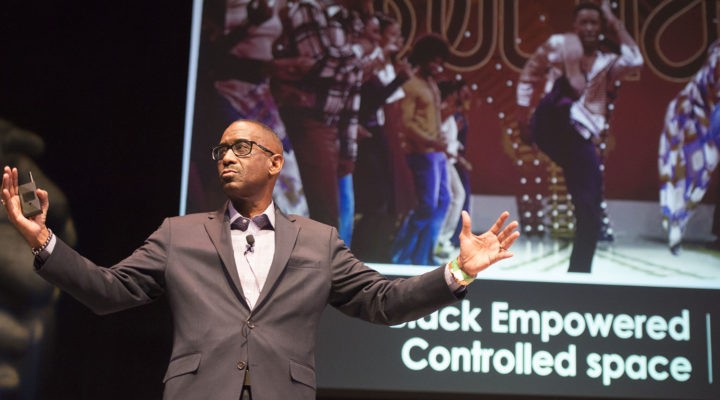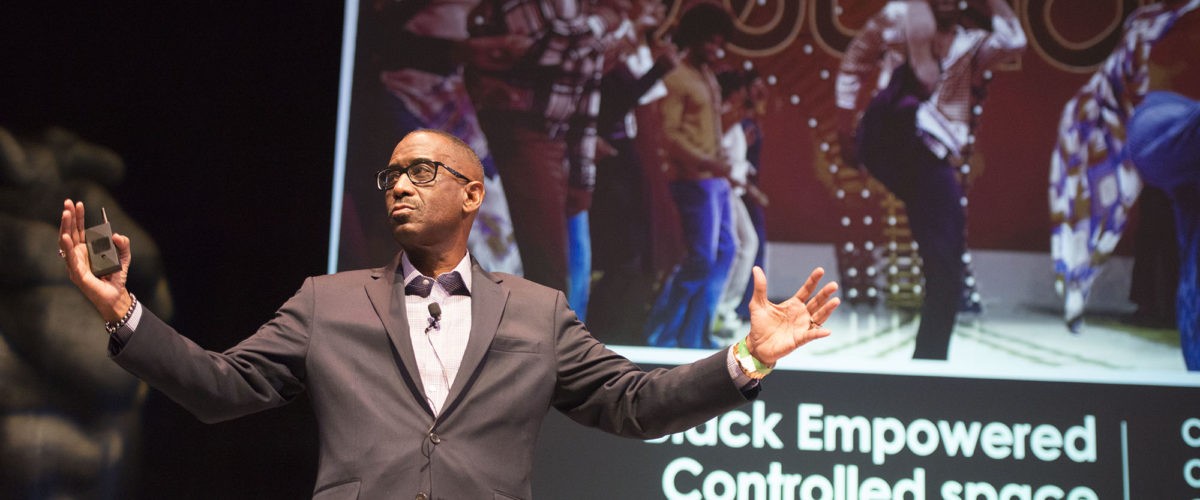While racial progress has been made in some aspects of U.S. life, racial divisions will not be bridged if the country’s large racial wealth gap persists, a Baptist pastor and college president told an interfaith conference on race.
At the 25th annual Festival of Faiths held Nov. 18-20 in Louisville, Ky., Kevin Cosby, pastor of St. Stephen Baptist Church in Louisville and president of the nearby historically Black Simmons College of Kentucky, said the “optics” related to race have changed in recent decades. Streets are named in honor of Black leaders, holidays commemorate Black history and Black athletes are cheered on by white fans even at colleges that once fought integration, he said.
Cosby added that workplace policies that promote diversity have increased the visibility of people of color in corporate America, although he said they are usually in “positions without power and have status without influence.”
The race issue is deeper than appearances, said Cosby, a presenter at one of the festival’s panel discussions. He offered a definition of racism that focuses on economic and power structures. “Racism is when whites hold a disproportionate amount of wealth, power and resources over Blacks and use those advantages to advance white interests, at the same time marginalizing and exploiting and subordinating Black Americans as the bottom caste in society.”
White Americans comprise 60% of the population and hold 90% of the wealth, Cosby said. Meanwhile, Blacks constitute 13% of the population and possess less than 3% of the wealth.
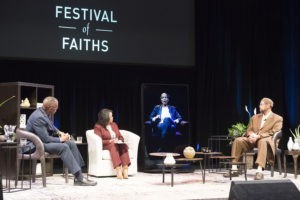 Blacks hold about the same proportion of the nation’s wealth as they did when the 13th Amendment outlawed slavery in 1865, Cosby said. “Blacks are hated because we are Black, but we are mistreated because we are poor.”
Blacks hold about the same proportion of the nation’s wealth as they did when the 13th Amendment outlawed slavery in 1865, Cosby said. “Blacks are hated because we are Black, but we are mistreated because we are poor.”
New Deal and Fair Deal programs, which were crucial to building the white middle class in the last century, largely excluded Black Americans, Cosby said. He added that redlining policies ensured housing segregation and guaranteed the prevalence of poverty in Black communities.
The federal government, Cosby said, is the only entity with the resources to close the wealth divide, and he noted such an endeavor would take multiple generations. He said reparations are due to Black people to compensate for the injustices they have sustained since slaves first arrived on American soil in 1619.
The Festival of Faith, which this year was titled “Sacred Change: Essential Conversations on Faith and Race,” is sponsored annually by Louisville’s Center for Interfaith Relations. For the 2021 event, the festival invited five area institutions of higher learning to curate panels of clergy and religion scholars. Among the participating schools were two Baptist-related institutions, Simmons College and Baptist Seminary of Kentucky. Other schools taking part were Louisville Presbyterian Theological Seminary, Spalding University and the University of Louisville.
The panel that included Cosby also featured Kelly Brown Douglas, dean of the Episcopal Divinity School at Union Theological Seminary in New York and Zaid Shakir, an imam who cofounded Zaytuna College in Berkeley, Calif., the first accredited Muslim liberal arts college in the U.S.
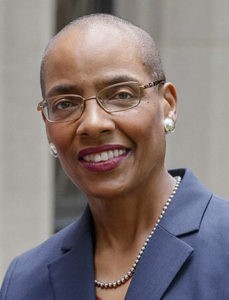
Kelly Brown Douglas
Brown Douglas called reparations “an important conversation,” but she urged moving beyond “simply trying to repair the breach of the past.” She encouraged closing the divide “between the unjust present and the just future to which we are all called.” This endeavor demands “actually changing the systems and structures that got us here in the first place.”
“I think the role of faith leaders and religious leaders and this nation is to begin to expand the moral imaginary, the moral imaginary of what is possible and the moral imaginary of what justice looks like,” she said.
Brown Douglas recommended a two-fold response that includes advocacy for systemic change and support for “sanctuaries of life and wholeness within our community.”
“The Black church, at its best, has always been that institution that has filled in gaps, the gaps that were left behind” by government and social service agencies, she explained.
However, Cosby, who leads a thriving Black church with multiple outreach programs that address social needs and encourage community development, pointed out that many Black congregations are struggling to stay afloat. High rates of poverty in communities surrounding Black churches present significant challenges to their viability.
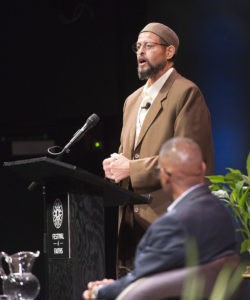
Shakir
Shakir stressed the significant role faith has played in giving hope and empowerment to Black people. “Why were slaves able to continue to struggle, continue to hold, continue to fight, continue to resist, continue to believe in God? Because religion gave them a heart, and if you have a heart, your heart is free.”
Racism will remain unless people of all races are committed to eradicating it, he insisted. If white clergy do not “bring what true humanity is, what true religion is, what true faith is to their congregations and their flocks, then it is the responsibility of Black ministers and Black imams to bring it to them, and I say that because without all of us, we’re not going to crack this nut of racism in this country.”
Yet he said transracial solidarity in America has faced opposition from white supremacists since Colonial times. Shakir traced this resistance back to Bacon’s Rebellion, an uprising in colonial Virginia that united white indentured servants and Black slaves. The Colonial government put down the rebellion and then instituted laws that historians say hardened the racial caste of slavery.
Related articles:
Racism-induced trauma creates hopelessness in Black communities, scholars say
The connection between the wealth gap, monopolies, affordable housing and biblical truths | Opinion by Tony Kovach
The U.S. wealth gap presents both a political challenge and a spiritual problem | Analysis by Todd Thomason

